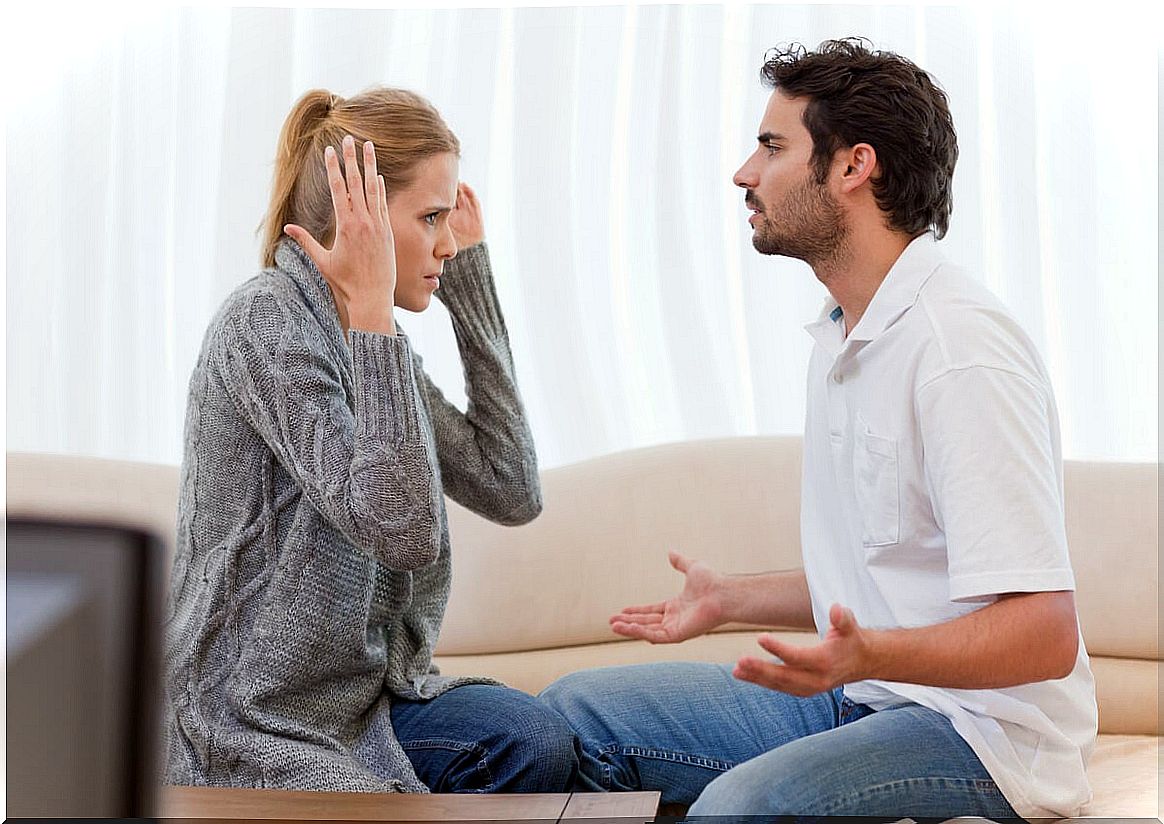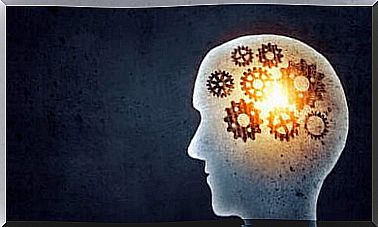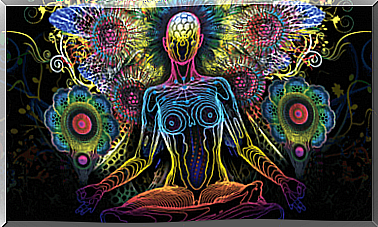Six Emotional Consequences Of Stress In Daily Life

Have you ever struggled with stress? Do you think this phenomenon only affects the body? In fact, the reality is that there are a number of emotional consequences of stress.
Although stress can be adaptive at certain times, prolonged stress negatively affects both your emotions and your state of mind. For this reason, you need to know about the consequences it may have.
Stress
Stress is a physical and mental condition that occurs when the environmental requirements exceed your resources and capacities. When you feel stressed, you feel overwhelmed. In fact, this condition prepares you to respond more quickly to environmental signals (especially hazard signals).
However, there are different types of stress. For example, if you are attacked by a lion, this is specific, adaptive and justified stress. However, if you suffer from ongoing stress, for example when you experience continuous problems at work, this is the chronic and persistent type.
Stress arises from a very primitive mechanism. It is a mechanism that has evolved through our millions of years of evolution. For this reason, not only humans experience stress, but also animals (to ensure survival).

How does stress affect you?
Stress affects your body on a physical level. However, it also affects your thoughts and feelings. Therefore , stress involves not only emotional exhaustion and fatigue, tension, hyper-alertness… but also anxiety and discomfort.
However, what are the most common emotional consequences of stress? Let’s find out.
Emotional consequences of stress
As you have seen, stress affects your emotions. In fact, your emotions, your body and your mind cannot be separated. Some of the most prominent emotional consequences of stress are:
1. Upset due to lack of control
One of the most important emotional consequences of stress is the uncomfortable feeling that arises from a lack of perceived control over your emotions and emotions. In these situations, you usually feel a desire to control what you feel and what happens to you.
But when you feel “overwhelmed” and unable to deal with these feelings, you feel uncomfortable. Furthermore, discomfort and worry are sometimes added to that discomfort because you feel you are unable to change the situation.
2. Anxiety
As we mentioned earlier, when you feel stressed, you try to control what happens to you both inside and out. Furthermore, you may have a tendency to constantly check the things you want to change, or do “good”.
These checks often lead to more anxiety and a feeling of learned helplessness.
An example of this emotional consequence of stress would be to continually check and check that you have made an absolutely perfect report for your boss. This is because you are afraid you will be reprimanded, which will increase your stress.
3. Nurture negative thoughts
Stress also affects your thinking system. In this way, it nourishes catastrophic and negative thoughts (also typical of anxiety).
These thoughts have a direct impact on your emotions and your state of mind. In fact, thinking negatively can make you feel weaker and sadder. Then your stress increases. It’s a vicious circle.
Learned helplessness
Learned helplessness, as mentioned earlier, is another emotional consequence of stress. It is defined as the feeling that you are effectively powerless and that you can do nothing to change – and improve – your situation.
When you suffer from stress, and above all, prolonged or chronic stress, you may end up developing this perception. It makes you feel more insecure, discomfort and anguish.
5. Increased irritability
Irritability is another of the emotional consequences of stress. Irritability means that your threshold for responding to events in the environment decreases. This means that you are easily influenced and things irritate you more easily.
What about stress? In fact, when you have been stressed for a long time, your irritability increases. This is for several reasons. First, you are physically and emotionally exhausted. Secondly, it means that you feel “overwhelmed” that you do not have much patience to react calmly to situations.

6. Burnout
According to Gil-Monte (2002), cited in a study by Zavalda (2008), burnout is a response to chronic work stress. It also includes physical as well as emotional symptoms. In fact, Zavala claims that burnout is one of several emotional consequences of stress.
Some of the symptoms of burnout are lack of energy, overload, irritability, inability to concentrate and overwhelm, etc. It is a syndrome that occurs in the workplace. Yet, it also affects your personal and emotional life.
Stress, especially chronic or prolonged stress, can make you feel emotionally upset, overwhelmed and burdened. It can even make you sad. These are just some of the emotional consequences of stress. However, they can be prevented when dealing with the underlying problem.
In these cases, psychological therapy is always beneficial. In addition, you should implement healthy lifestyle habits. For example, a balanced diet and adequate sleep. You should also establish a good schedule and routine, exercise regularly and eliminate unnecessary sources of stress, etc.









